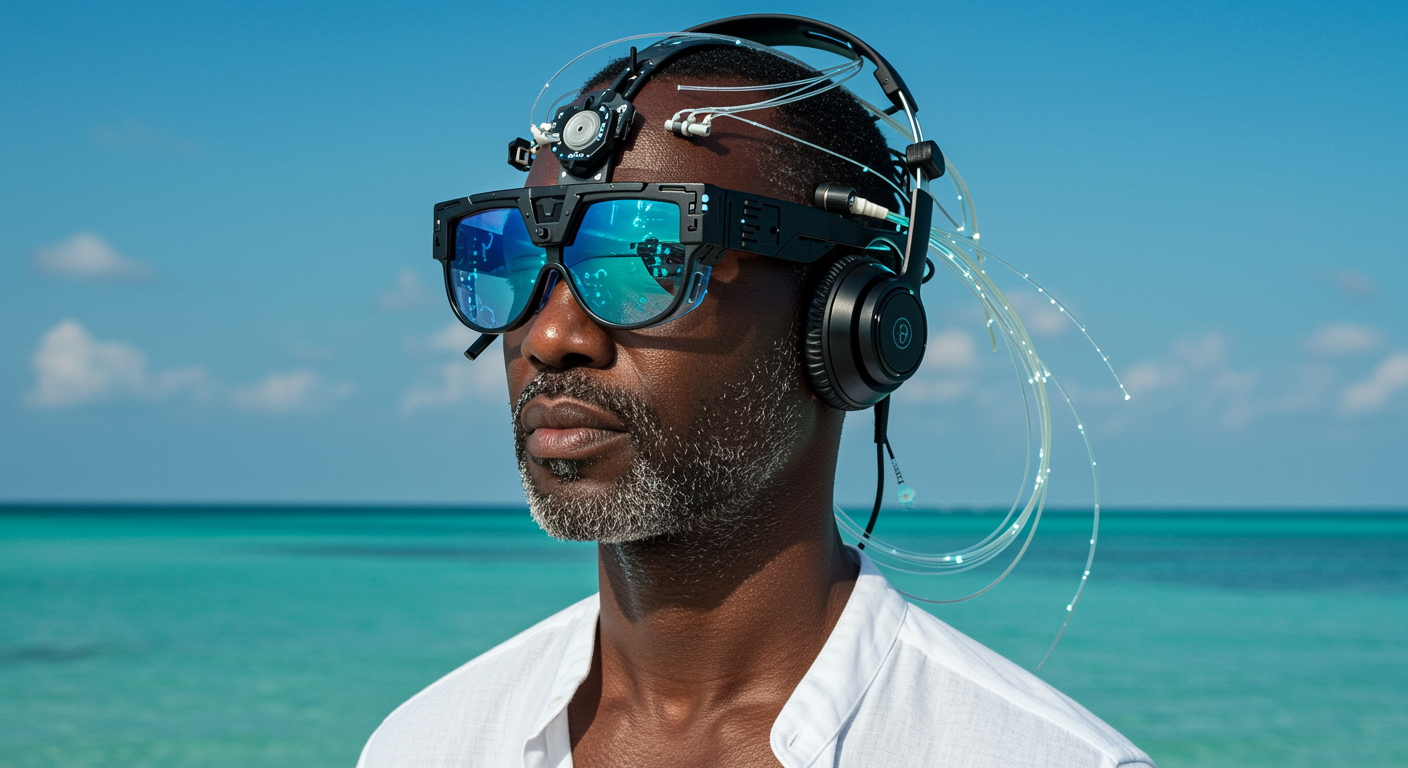Humans vs. Machines: The Caribbean Creativity Conundrum
In an era of rapid technological advancement, artificial intelligence is no longer a futuristic concept, it is a present reality, reshaping industries at an unprecedented pace. From content creation and customer engagement to strategic decision-making, AI is encroaching on tasks once thought to be the exclusive domain of human ingenuity. This transformation is not merely a matter of coexistence but a challenge of differentiation. As automation becomes more sophisticated, businesses and professionals alike are faced with a pressing question: What distinguishes human creativity in an age where machines can generate art, write articles, and make complex business decisions?
The Rise of AI in the Caribbean
AI-generated content is already disrupting media, advertising and marketing industries regionally. With staggering penetration rates across the Caribbean, OpenAI’s ChatGPT can compose articles, draft advertising copy, and even write music. Visual AI tools like DALL-E and Midjourney can create intricate digital artwork in seconds. In customer service, chatbots powered by natural language processing are now handling inquiries with speed and accuracy that rival, and sometimes surpass, their human counterparts. Predictive analytics, another AI-driven innovation, is transforming corporate strategy by offering data-backed insights that were once the product of Caribbean boardroom intuition.
These developments present a paradox: AI is making some regional industries more efficient, yet it threatens to commoditize creativity and decision-making. When machine-generated content becomes indistinguishable from human expression, how do brands, creatives, and businesses maintain their unique voices? When an algorithm can analyze consumer behavior and shape business strategies with unparalleled precision, what is the role of human leadership?
In the Caribbean, indigenous businesses are already grappling with these conundrums. The region, known for its vibrant culture and relationship-driven business environment, faces unique challenges in integrating AI while preserving authenticity. Regional financial institutions have embraced AI-driven chatbots and predictive analytics to streamline customer service. In theory, these tools offer greater efficiency and 24/7 availability, enhancing customer satisfaction. However, the Caribbean consumer has traditionally valued personalized, face-to-face interactions. Banks and financial service providers must balance automation with the warmth and familiarity that define customer relationships in the region. The challenge for these businesses lies in integrating AI while preserving the human touch that has been a cornerstone of their success.
Similarly, the creative sector, a cornerstone of Caribbean identity, is encountering the dual impact of AI. Local musicians, designers, and writers are experimenting with AI as a tool for inspiration and production, yet they remain wary of a future where automated systems dilute the distinct cultural narratives that make Caribbean artistry unique.
Automation vs. Human Creativity: The Battle for Differentiation
AI is encroaching on traditionally human-driven tasks such as content creation, customer engagement, and even strategic decision-making. This transformation is not merely a matter of coexistence but a challenge of value differentiation. What happens when AI-generated content is indistinguishable from human creativity? When algorithms respond to customer queries faster and more efficiently than a human service representative? Or when business strategies are shaped by predictive models rather than boardroom intuition?
The answer lies in adaptability. Companies that recognize the limits of automation and double down on uniquely human strengths such as creativity, emotional intelligence, and nuanced problem-solving, will carve out sustainable niches in an AI-dominated market. AI should be leveraged as an enhancement, not a replacement, of human ingenuity. Organizations that blend machine efficiency with human originality will emerge as leaders in this new era.
The Path Forward: Regional Adaptability and Differentiation
The key to navigating this technological shift lies in adaptability. Caribbean companies and professionals who understand the limits of automation and emphasize uniquely human strengths such as creativity, emotional intelligence, and nuanced problem-solving will thrive. Rather than replacing human ingenuity, AI should be harnessed as a complement to it.
Consider the hospitality industry, one of the Caribbean’s economic pillars. AI-powered tools can optimize bookings, tailor customer recommendations, and analyze market trends. Yet, the essence of Caribbean hospitality, its warmth, charm, and deeply personal customer interactions remains irreplaceable. Businesses that integrate AI without sacrificing these qualities will not only survive but differentiate themselves in an increasingly automated world.
In the creative industries, leveraging AI as an assistant rather than a creator can open new frontiers. Writers bring personal insight and cultural context, but AI can be used to refine ideas and provide varied outputs if given the right prompts. Designers can employ AI for technical execution while maintaining artistic vision and storytelling integrity.
A New Era of Human-Machine Collaboration
To successfully navigate the intersection of AI and global economic shifts, Caribbean businesses must prioritize the unique value of human qualities. By strategically integrating AI to enhance existing strengths, rather than seeking to replace them, organizations can carve out a distinct competitive edge rooted in regional identity and genuine human connection.


